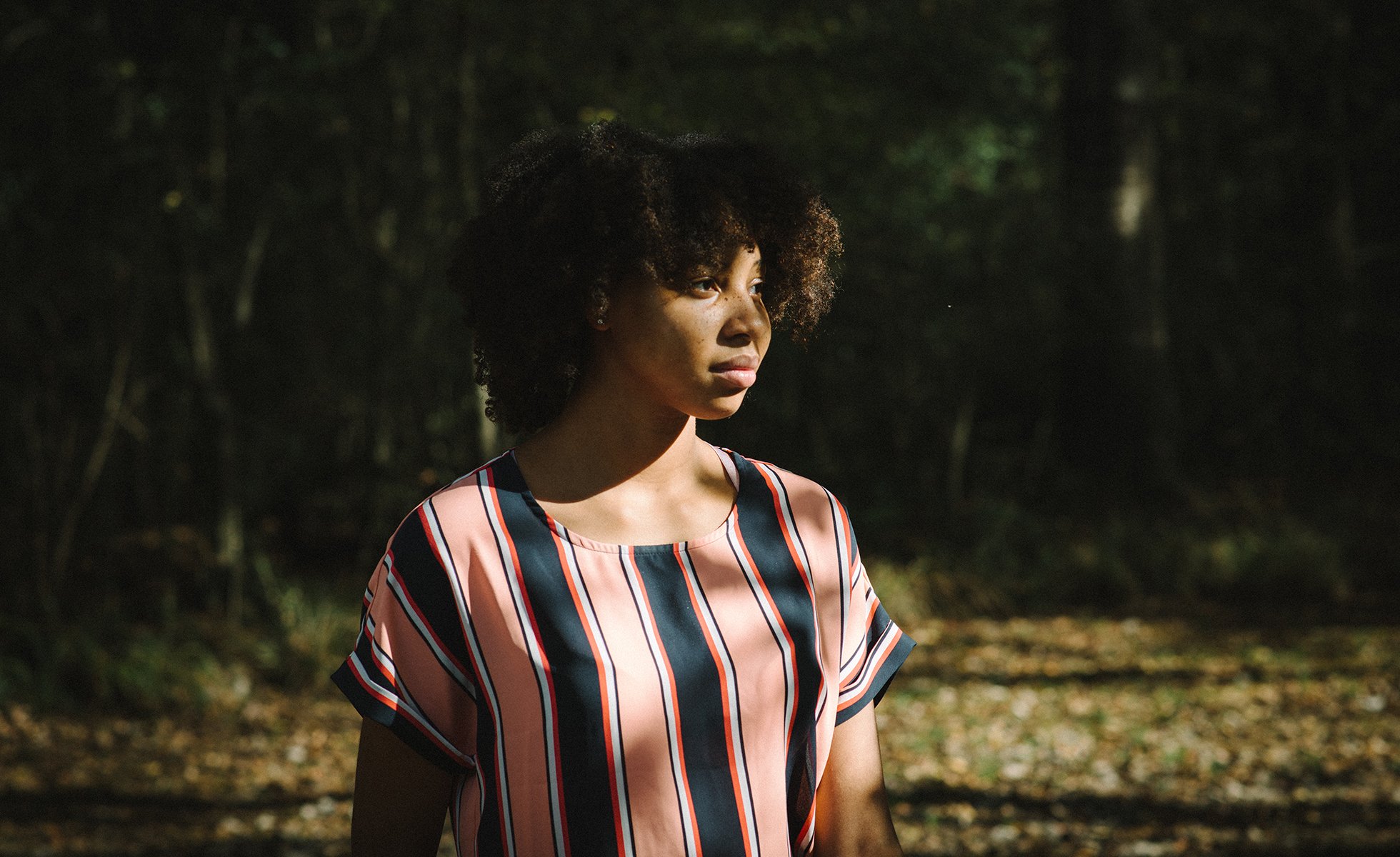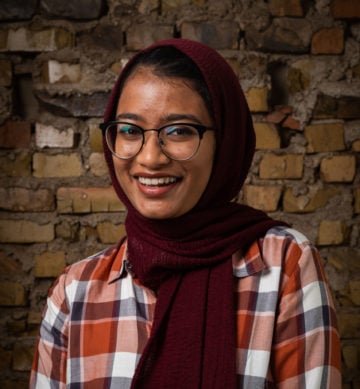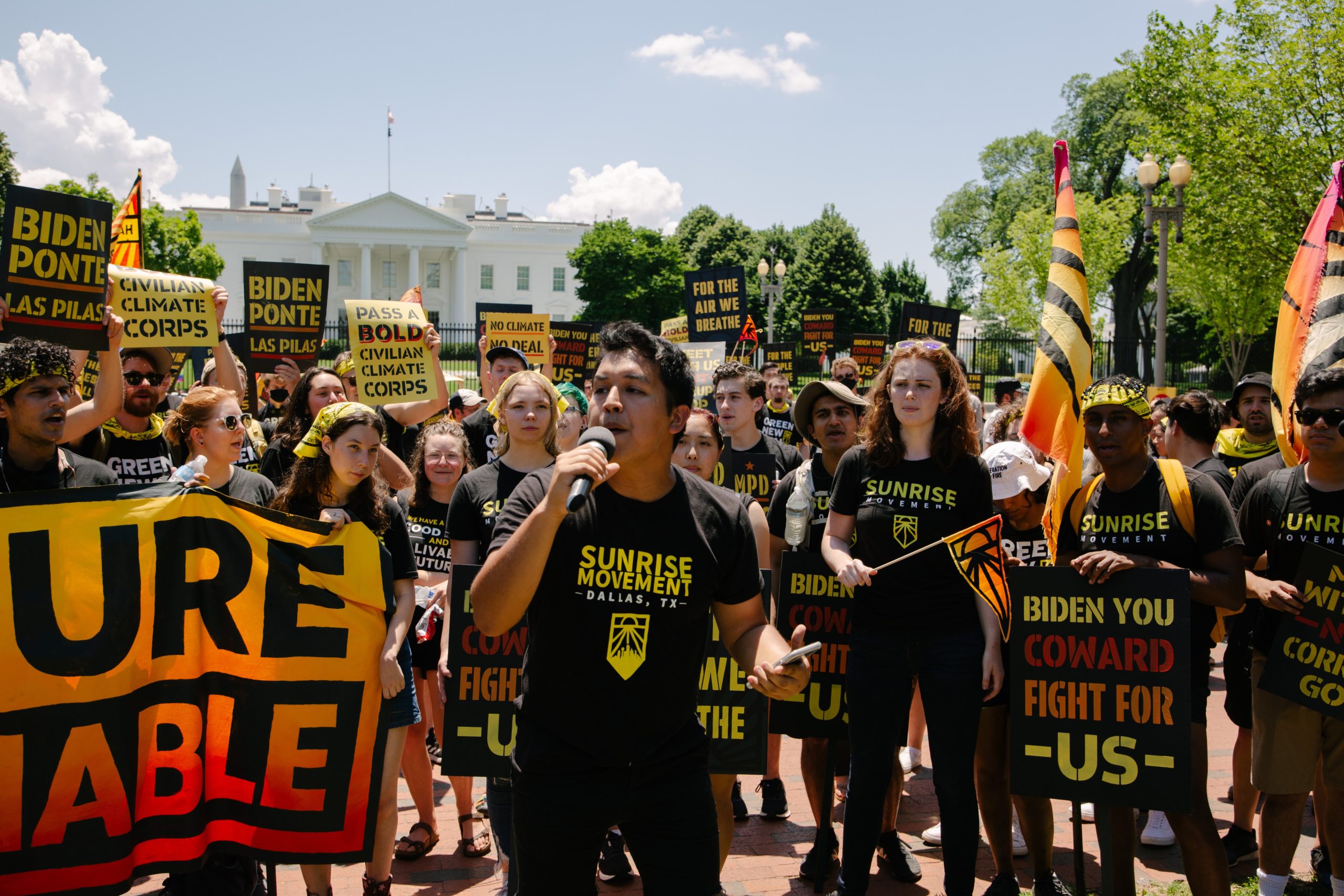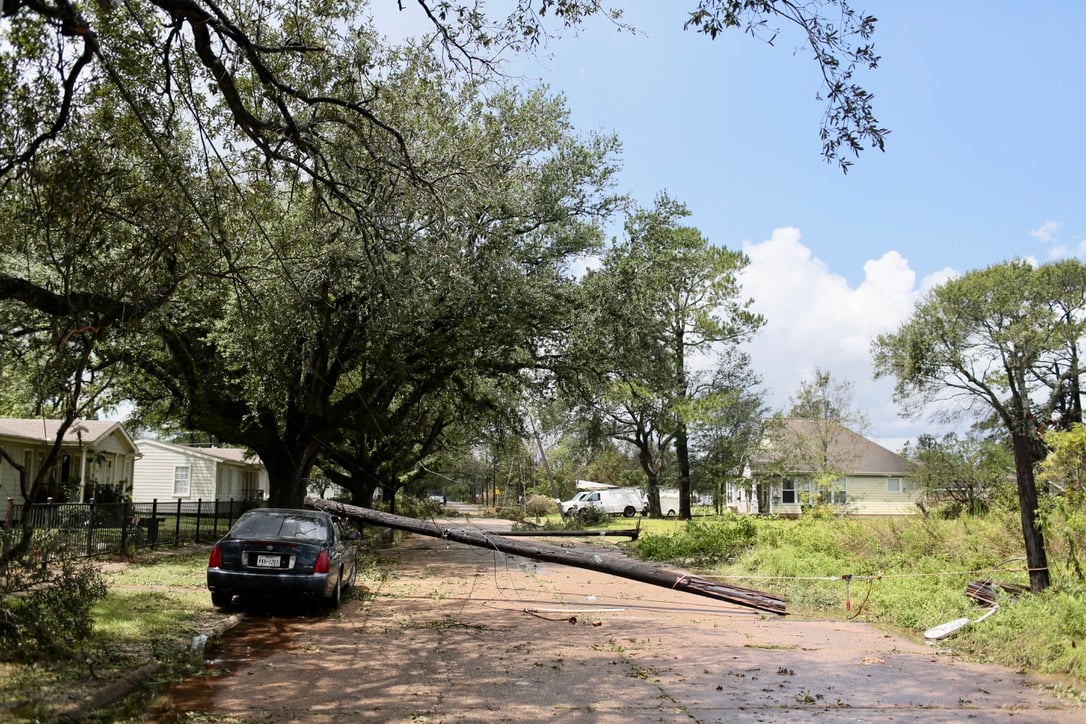
Teens for a Green New Deal
Sixteen-year-old climate organizer Chanté Davis on how change could start with young people in Texas.

A version of this story ran in the January / February 2021 issue.
Chanté Davis, a 16-year-old New Orleans native, knows that climate change is urgent and personal. In 2005, she and her family evacuated right before Hurricane Katrina decimated their hometown. They settled in Houston, where, over the past decade, she’s lived through several more storms, made stronger and more dangerous because of the rapid warming of the planet. In 2019, Davis joined the Sunrise Movement, a youth-led climate action organization. Since then, Davis, an aspiring marine biologist, has helped mobilize teens across the Houston area and the nation. As a lead organizer at Sunrise, she’s coordinated everything from school strikes drawing attention to the United States’ lack of climate policy to phone-banking and canvassing for candidates who promised to support the Green New Deal, a comprehensive climate bill that would guide the country toward a fossil fuel-free future.
Davis spoke with the Observer about why young people’s voices matter and what comes after the 2020 election.
Texas Observer: How did you get your start with Sunrise?
Davis: Harvey was my first experience living through a hurricane. The water was bursting in, we’re using towels, and it’s not working. We have to decide: Are we going to wade through the water, hop on this boat with people we don’t know? Or are we going to try and sleep here? And then in the aftermath, where are we going to go? Just having to make those decisions makes you think, I can’t go through this again.
A year after that, I wasn’t sure what I could do. I saw Sunrise, and how badass they were. That’s when Sunrise’s student walkouts were happening, and I was like, “Wow, these are students who are ditching school [for climate change], I want to do that too.” I chose to join them because they matched my personality—I saw more diverse people and people of all ages. I saw high schoolers and college freshmen who were leading these walkouts and sitting in at Nancy Pelosi’s office.
I’m a dual-credit student, so I was like, “Is this going to impact my college credits?” But meeting other high schoolers and college students who were out there protesting, it was so inspiring.
We have people from all backgrounds, ages, and classes. Nationally, Sunrise is creating spaces for Black leaders in the movement. It makes it easier for me to do my job. Sunrise does a really good job of bringing the intersectionality of the climate crisis to the forefront. Most climate initiatives focus strictly on the climate, but we look at how the climate crisis disproportionately affects people of color. We’re fighting for clean air and affordable housing—this is stuff people need, and this is how the world should be.
Living in Houston, you’re in the oil and gas capital of the world. How do you talk to people about the Green New Deal there?
Well, if you’re a [climate] denier, I’m not most likely talking to you. I am talking to people who are passive supporters, who have also been affected by Harvey. The climate crisis is affecting us. So I talk to people about, “Well, in Texas, we love to go big or go home. If we can get the Green New Deal in Houston, if we can convert to being the clean energy capital of the world, that would really set the tone. Not just for Houston or Texas, but the world.”
In November, Sunrise backed several Green New Deal candidates, including two in Texas: Mike Siegel and Julie Oliver. Both lost to Republican incumbents. How did you feel seeing the results?
We helped phone-bank. We did text-banking, telling people to tell their friends to go and vote. And we held weekly postcard-writing parties, so we sent those to youth voters. It was kind of heartbreaking at first, like, “Dang, we really thought we had this in the bag.”
But our hard work worked. Our tactics worked. This year, [presidential candidates] were talking about the Green New Deal and the climate crisis. So I’m happy to see that people really do care about climate change. Especially in Texas, [Republicans] paint the idea that “these people are oil and gas people.” But people are waking up and seeing that we need a transition right now. We need abrupt change.
What comes next, after the 2020 election?
We are planning more mass youth strikes and walkouts to tell Biden, “We helped you create that climate plan. We helped get swing voters and youth voters and people of color on your side.” He hasn’t endorsed the Green New Deal. So that’s our next focus, that he gives us the Green New Deal.
I believe he will. We were able to push him so far. With more public pressure, he’ll have to listen. I see it taking at least two years. As soon as he gets inaugurated, we’re going to hit the streets and demand that he hop on this problem right now. That was one of the things on his ticket, so we have to make sure he fulfills that promise. That second year, we’ll be agitating, and also there will be more Senate and congressional races, so we’ll be trying to elect candidates so we have more people in Congress who are pushing him and getting this legislation passed.
Why focus on young voters?
Gen Z and Millennials, they are a huge chunk of the voter population. So I was like, “Y’all really have to drive it home, show them who’s in charge.” Secondly, since I couldn’t vote myself, I have friends who can vote, like seniors and college freshmen, and I’m like, “Can you vote for me since I can’t?” Sometimes it can be frustrating, especially with phone-banking. You talk to people who are supportive, but they’re not willing to be active. Like, “Oh, I don’t want to vote,” or something like that. With gerrymandering and voter suppression in Texas, that makes it harder.
Are you frustrated by the fact that young people are the ones pushing for these policies, instead of politicians?
Of course. It’s inspiring on one hand. But it constantly raises the question of why wasn’t this done before? Why weren’t people more ambitious?
I have my moments where it’s hard to manage, but mostly I put Sunrise over school. At the end of the day, if we don’t combat the climate crisis, there will be no school to worry about.
This interview has been edited for length and clarity.


